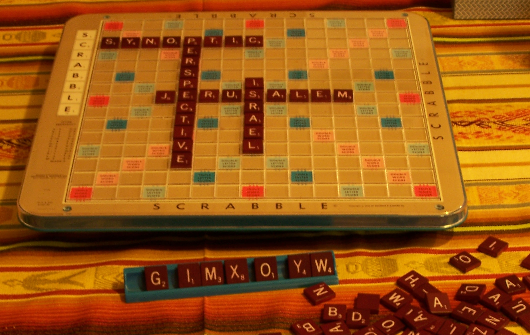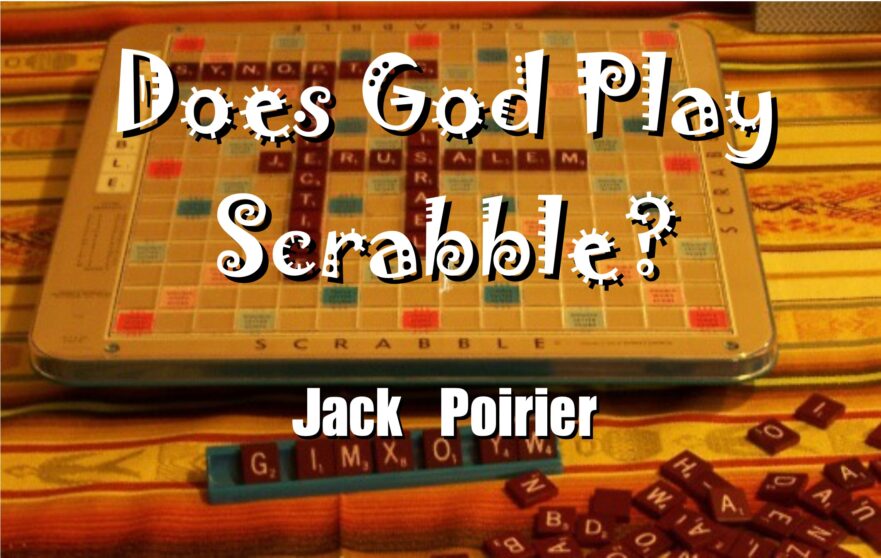How to cite this article: Jack Poirier, “Does God Play Scrabble?” Jerusalem Perspective (2004) [https://www.jerusalemperspective.com/4123/].
Einstein famously claimed that “God does not play dice.” In what follows, I argue that God does not play Scrabble, either. That is, the idea of a so-called Bible Code, in which confirmatory words or messages can be extracted from the Bible by reading the letters as they fall at a certain frequency, is completely false. In doing so, I will examine the claims made by one of the Bible Code’s leading proponents, Grant Jeffrey, and I will do the math that he has left conspicuously undone, showing that the purportedly amazing finds are owed to nothing more than the results of combinatorics involving huge numbers of letters. Contrary to Jeffrey’s contention, the math involved is relatively simple, and when properly done, it completely undoes the whole theory.
Jeffrey hedges his incredibly inflated figures with a triumphalist rhetoric. The reader is repeatedly met with celebrations of the supposed overwhelmingness of the “proof” presented, and of the implied dim-wittedness of anyone who will not succumb to Jeffrey’s arguments. The best way to test whether this rhetoric fits its target, I think, is to do the math ourselves.
Doing the Math
In English, certain letters appear far more frequently than others. That is why, in Scrabble, the letters a, e, and n are each worth only one point, while j is worth eight points and q and z are each worth ten points. The frequency with which a, e, or n appear in the average word is probably greater than the frequency with which a j, q, or z appear in the average sentence. The probability of a certain word appearing in a jumbled set of letters from a real text is therefore dependent upon the letters comprising that word, so that the word “near” has a far greater chance of being randomly encoded within a sequence of letters than does the word “quiz”. (The same is true of Hebrew, but to a lesser extent. See below.) To test the probability that a word will appear within a given sequence of letters, it is necessary to have some idea of the frequency of the letters that comprise the word.
The real secret behind the Bible Code is simply mathematical, and there is no need to posit a divine origin for the “encoded” words. If these encoded messages are in some sense the “signature of God,” then God is nothing more than the deification of mathematical principles. Given a long enough jumble of letters, one could find virtually anything encoded in it. And the jumble of letters that the Bible Code crowd works with is effectively 50 or 60 million letters long (counting all the ELS levels). What could not be found in it? Even when these word searches are context sensitive—e.g., so that Hitler is said to be encoded in the narrative about Haman in the book of Esther, etc.—the jumbles are still extremely large.
Paid Content
Premium Members and Friends of JP must be logged in to access this content: Login
If you do not have a paid subscription, please consider registering as a Premium Member starting at $10/month (paid monthly) or only $5/month (paid annually): Register
One Time Purchase Rather Than Membership
Rather than purchasing a membership subscription, you may purchase access to this single page for $1.99 USD. To purchase access we strongly encourage users to first register for a free account with JP (Register), which will make the process of accessing your purchase much simpler. Once you have registered you may login and purchase access to this page at this link:
































































































